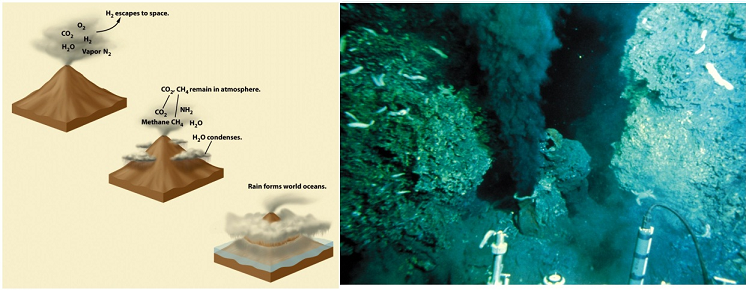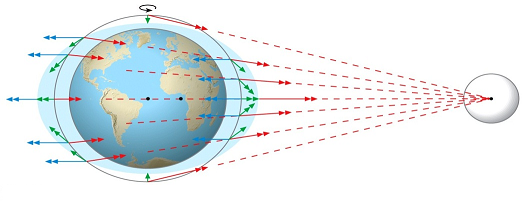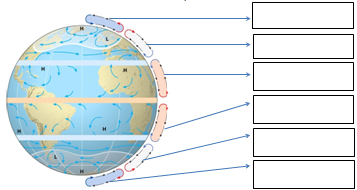Reference no: EM13834316
Earth's Dynamic Ocean and Atmosphere
Part 1
Figures 1 and 2 depict two important features of the world ocean. Figure 1 shows one way in which the ocean basins filled with water and Figure 2 represents one of the many mineral sources contributing to ocean salinity.

1. Explain the origin of ocean water in 150 words.
2. Discuss the particular way in which Figure 2 contributes to the salinity of seawater. What is the current theory on the evolution of the world ocean?
Part 2
This critical thinking question is from Chapter 12 in your textbook:
In May 1990, a container ship called Hansa Carrier encountered a storm in the North Pacific at about 48° north latitude, and lost 21 containers overboard, five of which contained 80,000 Nike shoes. The shoes carried serial numbers that identified them as being from the containers. By the end of 1990, shoes were washing up on Vancouver Island, British Columbia, and Oregon. By the winter of 1991, shoes were appearing on Hawaiian beaches.
Using Figure 12.11 in the textbook. Answer the following questions:
1. Which ocean currents were most likely to have transported the shoes?
2. Locate and describe one other surface current in the world ocean.
Part 3
Figure 13.3 in the textbook helps visualize how tides are developed. In 150 words, answer the following:

1. What role does the Moon, Sun, and inertia play in the development of tides?
2. Why is there a variation in tidal ranges?
Part 4
Watch the Wiley Plus video on Pelican Island (Merali 13.2)
1. What methods are scientists using to stop the erosion on Pelican Island?
2. Research one other method that is used on islands, beaches, or other landmass to protect this land from erosion.
Part 5
Six large convection loops are responsible for circulation air masses in the atmosphere. Three of the loops are in the Northern Hemisphere and three of the loops are in the Southern Hemisphere. Fill in the text box with the name of the convection loop.

In 150 words, explain why these cells affect global atmospheric circulation patterns.